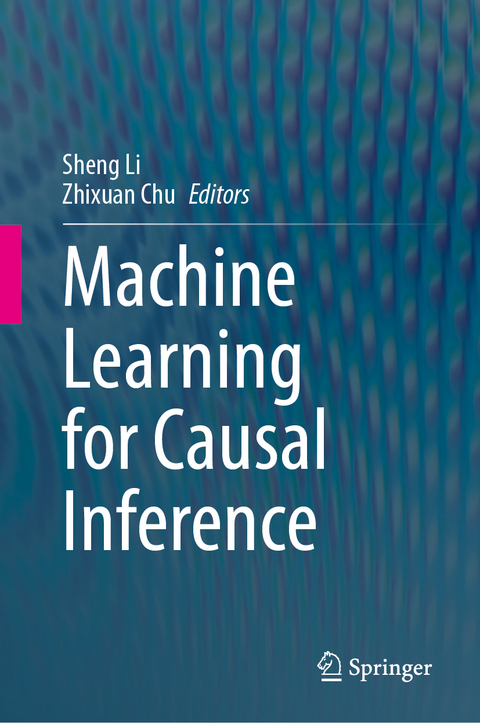
Machine Learning for Causal Inference
Springer International Publishing (Verlag)
978-3-031-35050-4 (ISBN)
Machine Learning for Causal Inference explores the challenges associated with the relationship between machine learning and causal inference, such as biased estimates of causal effects, untrustworthy models, and complicated applications in other artificial intelligence domains. However, it also presents potential solutions to these issues. The book is a valuable resource for researchers, teachers, practitioners, and students interested in these fields. It provides insights into how combining machine learning and causal inference can improve the system's capability to accomplish causal artificial intelligence based on data. The book showcases promising research directions and emphasizes the importance of understanding the causal relationship to construct different machine-learning models from data.
Dr. Sheng Li is an Assistant Professor of Data Science at the University of Virginia (UVA). Prior to joining UVA, he was an Assistant Professor of Computer Science at the University of Georgia (UGA) from 2018 to 2022, and was a Data Scientist at Adobe Research from 2017 to 2018. He obtained his Ph.D. degree in computer engineering from Northeastern University in 2017. Dr. Li is broadly interested in the areas of data science, machine learning, artificial intelligence, and their interdisciplinary applications. His recent research interests include trustworthy representation learning and causal inference. He has published over 140 papers and has received over 10 research awards, such as the INNS Young Investigator Award, Fred C. Davidson Early Career Scholar Award, Adobe Data Science Research Award, Cisco Faculty Research Award, and SDM Best Paper Award. He has served as Associate Editor for seven journals such as IEEE Transactions on Neural Networks and Learning Systems and IEEE Transactions on Circuits and Systems for Video Technology, and as an Area Chair for NeurIPS, ICLR, ICML and IJCAI. Dr. Zhixuan Chu is a researcher at Ant Group. He holds a Ph.D. in Biostatistics and a Master's degree in Computer Science from the University of Georgia, along with a Bachelor's degree in Statistics from Huazhong University of Science and Technology. His research pursuits are centered around trustworthy artificial intelligence and the various interdisciplinary applications it offers, with a particular focus on causal inference, striving to improve the effectiveness of causal inference with machine learning technologies and enhance the stability and interpretability of machine learning with causal inference technologies. He has published over 20 papers in top-tier computer science conferences and journals.
Overview of the Book.- Causal Inference Preliminary.- Causal Effect Estimation: Basic Methodologies.- Causal Inference on Graphs.- Causal Effect Estimation: Recent Progress, Challenges, and Opportunities.- Fair Machine Learning Through the Lens of Causality.- Causal Explainable AI.- Causal Domain Generalization.- Causal Inference and Natural Language Processing.- Causal Inference and Recommendations.- Causality Encourage the Identifiability of Instance-Dependent Label Noise.- Causal Interventional Time Series Forecasting on Multi-horizon and Multi-series Data.- Continual Causal Effect Estimation.- Summary.
| Erscheinungsdatum | 28.11.2023 |
|---|---|
| Zusatzinfo | XVI, 298 p. 73 illus., 49 illus. in color. |
| Verlagsort | Cham |
| Sprache | englisch |
| Maße | 155 x 235 mm |
| Gewicht | 631 g |
| Themenwelt | Mathematik / Informatik ► Informatik ► Datenbanken |
| Informatik ► Theorie / Studium ► Algorithmen | |
| Informatik ► Theorie / Studium ► Künstliche Intelligenz / Robotik | |
| Mathematik / Informatik ► Mathematik | |
| Technik | |
| Schlagworte | Causal Discovery • Causality • Counterfactuals • Statistics • Treatment Effect Estimation |
| ISBN-10 | 3-031-35050-2 / 3031350502 |
| ISBN-13 | 978-3-031-35050-4 / 9783031350504 |
| Zustand | Neuware |
| Informationen gemäß Produktsicherheitsverordnung (GPSR) | |
| Haben Sie eine Frage zum Produkt? |
aus dem Bereich


